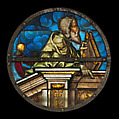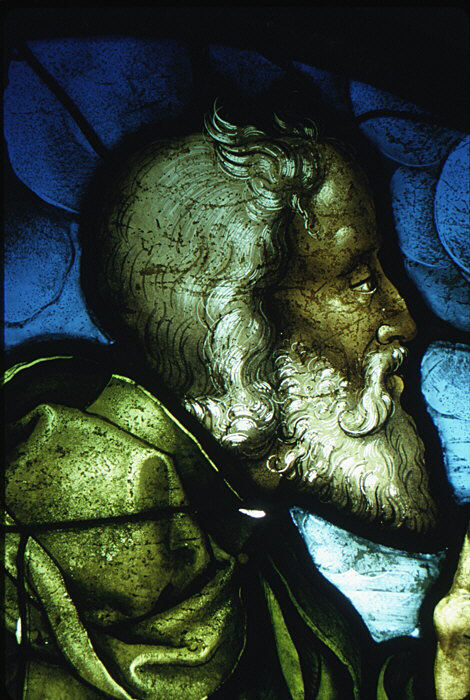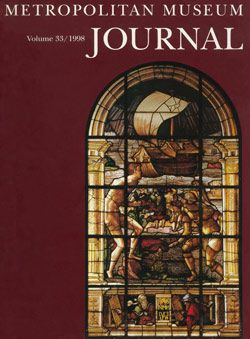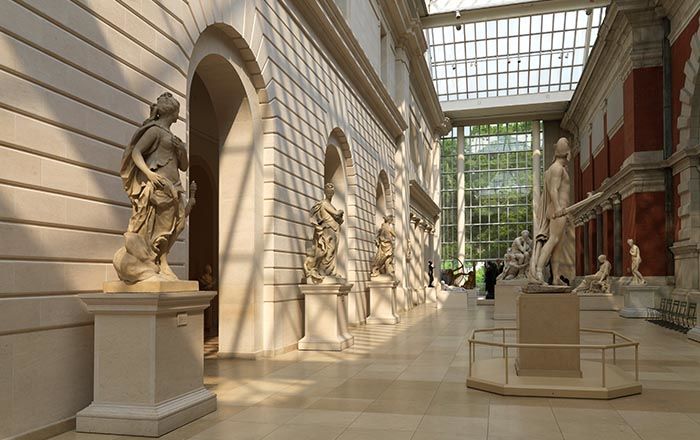The Prophet Moses
Valentin Bousch French
This window comes from a series of seven windows made for the choir of the Benedictine priory church of Saint-Firmin in Flavigny-sur-Moselle in the Lorraine region of France. The windows had been commissioned by the prior, Wary de Lucy (1510–1557) from Valentin Bousch, a glass painter in Metz who had already worked on a number of important projects including Metz cathedral. Bousch was occupied by the Flavigny-sur-Moselle project in the early 1530s. Three of the extant monumental windows from the series each bear a date (1531, 1532 and 1533). Bousch was one of the most significant master glaziers in north-eastern France in the sixteenth century and has long been recognized as an important participant in the stylistic and technical developments of the Northern Renaissance.
Together, the windows presented a Biblical narrative reflecting the story of humanity, starting with the Creation and Fall of Man (now in a private collection, Langley, British Columbia), then consecutively depicting the Deluge (MMA 17.40.2a-r), Moses presenting the tablets of Law (MMA 17.40.1a-r), the Nativity or Annunciation at the east end (lost), the Crucifixion (Saint Joseph's church, Stockbridge, Mass.), the Resurrection or the Supper at Emmaus (lost) and, finally, the Last Judgement (lost).
This medallion, together with the medallion of Isaiah (MMA 17.40.3) and the two medallions with the Craincourt and Savigny arms (MMA 17.40.5, .6), was originally part of the window from the set depicting the Creation and Fall of Man (now in a private collection, Langley, British Columbia), inscribed with the date 1533; a drawing in Nancy, Bibliothèque municipale (Fonds Abel, carton 152), records the complete window intact in the priory church of Saint-Firmin before it was sold.
In these windows, Valentin Bousch rejected traditional compartmentalization, instead treating each composition like an enormous painted or carved retable, with trompe l'œil architectural frames. Brilliant hues of colored glass are combined with painted areas of grisaille and silver-stain on clear glass. The windows provide an early example of daring virtuoso glass-cutting to achieve sharp and sinuous contours. As a group, the windows are remarkable because of their nuanced modeling, their vitality of composition, lifelike features and the contrast of exquisite landscape details (like those in the Moses window) with dramatic dynamism (most skilful in the Deluge window).
This image cannot be enlarged, viewed at full screen, or downloaded.
This artwork is meant to be viewed from right to left. Scroll left to view more.




